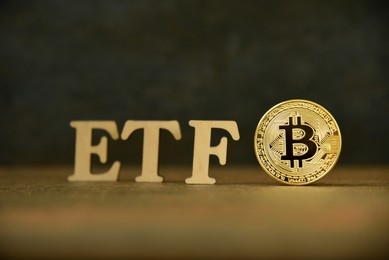In a highly anticipated week for the crypto industry, the approval or rejection of Bitcoin ETF applications hangs in the balance. As the largest asset managers in the world vie for SEC approval, recent updates in their filings have sparked optimism within the crypto community.
Bitwise And VanEck Lead The Pack
According to FOX Journalist Eleanor Terret, all issuers, except Hashdex, a global crypto asset manager, have successfully submitted their updated S-1s (S-3 in Grayscale’s case) to the US Securities and Exchange Commission (SEC) by the official deadline of 8 AM.
Terret suggests that unless there is a last-minute filing from Hashdex, these issuers have completed their preparations and are theoretically ready to launch their Bitcoin ETF this week.
The filings submitted by crypto issuers highlight the measures taken to seek approval from the SEC. Bloomberg ETF expert James Seyffart sheds light on the fee structures and key updates.
Among the notable developments, Bitwise offers the lowest long-term fee at 0.24%, followed by VanEck at 0.25%. Additionally, fee waivers down to 0.0% for six months have been granted for three ETFs.
As seen in the chart above shared by Seyffart, BlackRock’s fee will be 0.20% for the first six months or until $5 billion in assets, after which it will increase to 0.30%.
Ark and 21Shares are offering a fee of 0.25% with no charges for the initial six months or until $1 billion in assets. On the other hand, Grayscale has submitted an updated S-3, reducing its fee from 2% to 1.5%, with a provision for potential fee waivers.
What Are The Implications Of Reduced Fees In Bitcoin ETF?
The lower fees proposed by the Bitcoin ETF issuers have the potential to bring about several implications for investors and the cryptocurrency industry as a whole.
Firstly, these reduced fees can lead to increased investor participation. By making investing in Bitcoin ETFs more affordable, a wider range of investors, including retail investors, institutional investors, and traditional asset managers, may be more inclined to allocate funds to these ETFs.
This increased participation can result in greater liquidity and trading volume in the market, contributing to the overall growth and maturity of the cryptocurrency industry.
Secondly, lower fees translate into cost savings for investors. With reduced expenses associated with investing in Bitcoin ETFs, investors can retain a larger portion of their returns. This can be particularly beneficial for retail investors with limited financial resources.
Furthermore, introducing lower fees through the Bitcoin ETF fee war signifies a shift towards increased market efficiency. As issuers compete to offer the most attractive fee structures, it fosters a more competitive environment.
This competition can drive innovation, improve product offerings, and lead to further fee reductions in the future. Ultimately, this benefits investors by giving them a wider variety of investment options and access to more cost-effective investment vehicles.
As the SEC reviews the updated filings and fee structures, the crypto community eagerly awaits a decision that could pave the way for Bitcoin ETFs and potentially shape the future of the entire crypto industry.
The outcome of this regulatory milestone holds the potential to open new avenues for institutional and retail investors, providing greater accessibility and legitimacy to the world of cryptocurrencies.
As the SEC’s decision looms, Bitcoin is trading at $45,000, reflecting a 1.5% increase in the past 24 hours and a notable 5% gain over the past seven days.
Featured image from Shutterstock, chart from TradingView.com
Credit: Source link
































